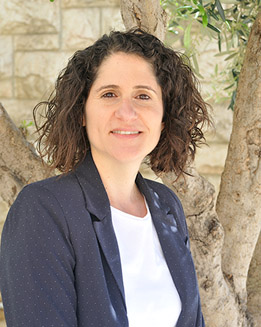
I started my professional career studying both biology and psychology and enjoyed learning about a wide variety of subjects. In my masters I managed to combine my subjects of interest by studying genetic counseling. I continued with the genetic approach in my PhD with a focus on DNA damage and repair. I conducted my postdoctoral studies at the National Cancer Institute at the NIH in Bethesda, Maryland where I joined a lab to explore novel therapies for melanoma skin cancer. After five years I returned to Israel with my spouse and two daughters to join the Hebrew University as a researcher at the medical faculty.
In my lab at the Hebrew University we are interested in how the number of genes in humans is relatively low compared to many other organisms of much lower complexity. Part of the answer to the apparent lack of additional genes to create a more complex organism stems from the fact that a single gene can code for many different proteins by a process called splicing. A gene is a coding sequence that gives instructions on how to generate a specific protein, but splicing selectively includes or excludes specific regions of this code to create different combinations, resulting in multiple proteins produced from the same gene. Since each protein product has a different function, it is important to tightly regulate splicing. Changes to splicing are common in many diseases, including cancer. In our previous work we have shown that deciphering splicing regulation holds great potential for uncovering novel cancer therapies. Understanding the splicing of one gene named BRAF in melanoma led us to identify a possible drug for patients with this disease. Our work demonstrates the interplay between basic and translational science, and the importance of understanding the splicing machinery for cancer therapy.

